|
|
|
|
China’s treatment of its Uighur Muslim minority in north-west China has caused a great deal of concern for some years. Reports of the mass detention of hundreds of thousands of people in “re-education” camps have led to accusations of genocide from western governments, something China has strenuously denied.
What is less well known is China’s long and intimate relationship with Islam, which dates back as far as the seventh century and which flourished in the 13th century when Muslims came to China in unprecedented numbers to work as administrators and civil servants. Alessandra Cappelletti reports from Suzhou, a city near Shanghai, where the remains of ten mosques tell the story of a time when Islamic and Confucian ideas were often taught side-by-side.
The World Health Organization has faced a barrage of criticism over the way it initially responded to the emergence of COVID-19 in Wuhan. Now, a lot of reflections are taking place on how to stop another pandemic from emerging in the future. In this episode of The Conversation Weekly podcast, three experts on global health explain why COVID-19 is a moment of reckoning for the WHO, and where it goes from here.
After receiving its first batch of COVID-19 vaccines, Nigeria has taken its first few tentative steps in its rollout plan by targeting some frontline health workers and several top politicians, including President Muhammadu Buhari, his deputy, Yemi Osinbajo, state governors and their aides. But that’s where the clarity ends. Nigerians remain in the dark about exactly how the government plans to meet its target of vaccinating 40% of the population by the end of the year. Solomon Bakarey sets out how this lack of clarity is stoking mistrust. He also provides some insights into how the country should go about a comprehensive rollout plan.
|
Jonathan Este
Associate Editor, International Affairs Editor
|

|
|

Suzhou, 60km north of Shanghai, once had a thriving Muslim community with ten mosques. Now only one remains.
Jan Wlodarczyk / Alamy Stock Photo
Alessandra Cappelletti, Xi'an Jiaotong Liverpool University
At one point it was thought that China could become the largest Islamic country in the world. What happened?
|
|
|
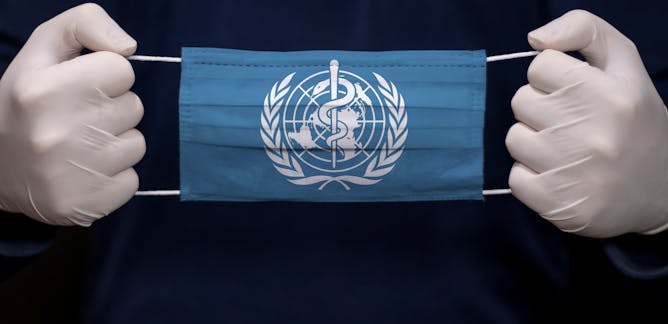
Gemma Ware, The Conversation; Daniel Merino, The Conversation
Plus a round-up of the coronavirus situation around the world marking one year since COVID-19 was declared a pandemic. Listen to Episode 6 of The Conversation Weekly.
| |
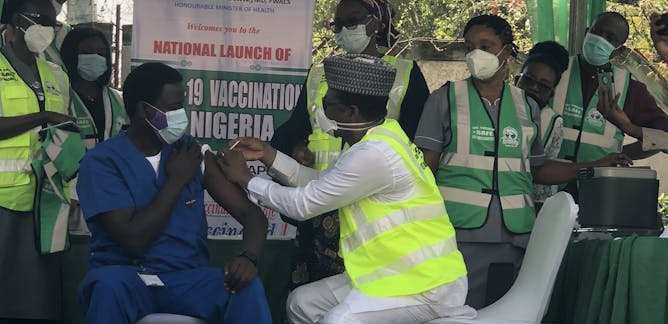
Solomon Bakarey, University of Ibadan
Confusion reigns about Nigeria's distribution plan for its first batch of COVID-19 vaccines.
|
|
|
Politics + Society
|
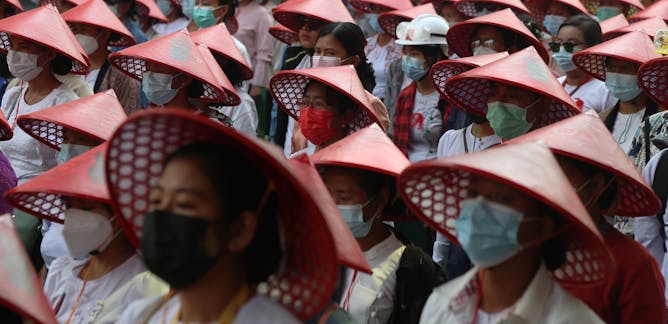
Adam Simpson, University of South Australia; Nicholas Farrelly, University of Tasmania
The military is escalating its pressure on protesters in Myanmar, but it's running out of options for resolving the crisis. Bullets may not be enough to quash the opposition this time.
| |
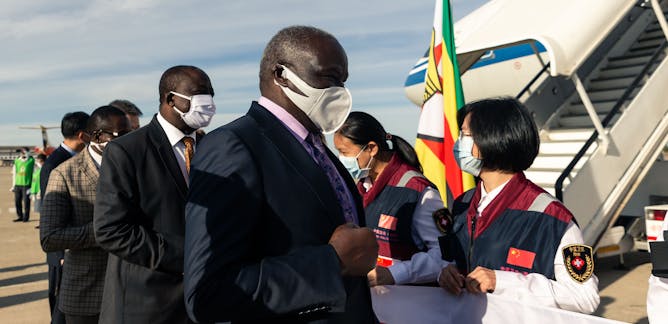
Dinko Hanaan Dinko, University of Denver
China is providing masks, vaccines, medical equipment and personnel to African countries ignored by the U.S. in recent years, positioning itself as an essential partner to the region.
|
|
|
Science + Technology
|

Quentin Changeat, UCL; Billy Edwards, UCL
The hottest exoplanet known so far has metals in its atmosphere – something scientists thought would be impossible.
| |
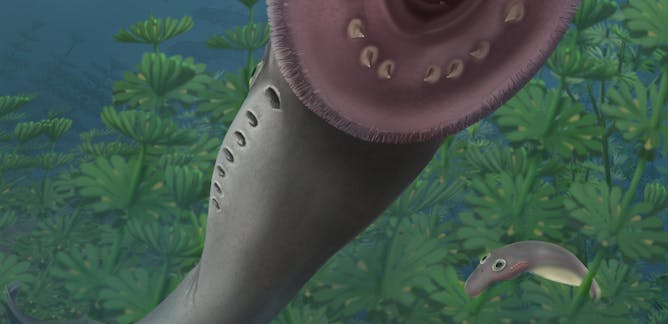
Robert W. Gess, Rhodes University
Since the 19th century, biologists have treated the larvae of lampreys as a relic of evolutionary ancestry that could potentially give clues about vertebrate origins. Now fossils overturn that view.
|
|
|
En Français
|
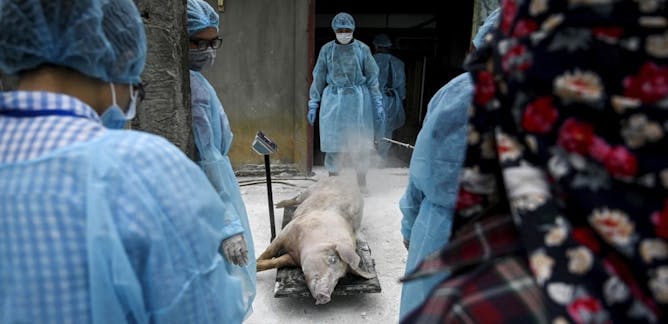
Alexis Delabouglise, Cirad; Flavie Luce Goutard, Cirad; François Roger, Cirad; Marisa Peyre, Cirad
Le porc fait partie des potentielles espèces ayant pu servir d’hôte intermédiaire dans l’évolution d’un coronavirus de chauves-souris vers le virus responsable de la Covid-19.
| |

Dominique Costagliola, Inserm
Qu’il s’agisse de tester le potentiel anti-SARS-CoV-2 de molécules utilisées dans d’autres contextes médicaux ou de mettre au point des thérapies antivirales spécifiques, où en sont les recherches ?
|
|
|
| |
| |
| |
| |
| |
| |
|
|
|
|
|
|
|